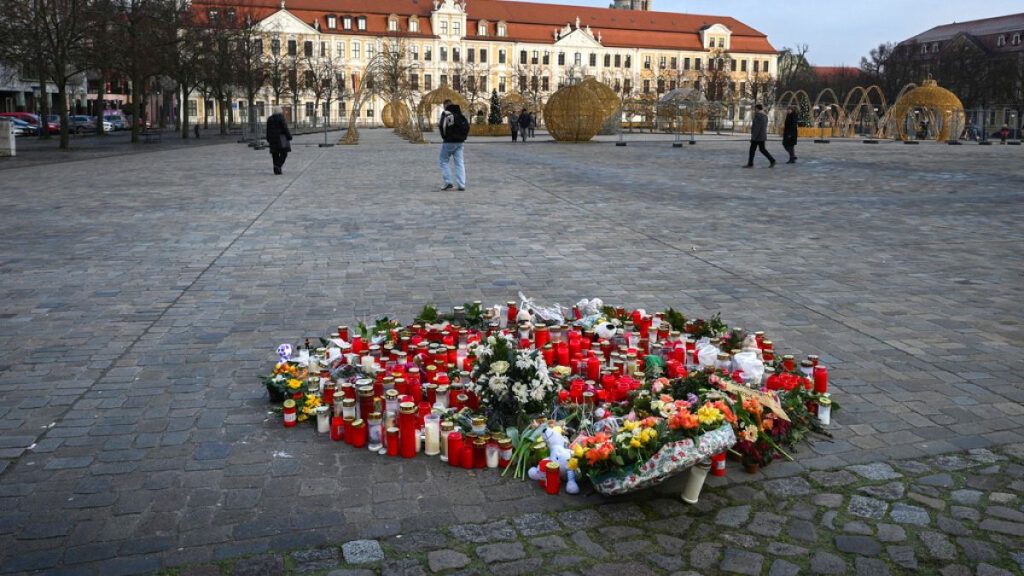The Christmas market attack in Magdeburg, Germany, casts a long shadow over the festive season, leaving a trail of grief and unanswered questions. The incident, which initially claimed five lives, has now tragically taken a sixth victim, a 52-year-old woman who succumbed to her injuries in the hospital. The attack, perpetrated on December 20th, targeted innocent civilians enjoying the holiday atmosphere, resulting in the deaths of four women aged between 45 and 75, a nine-year-old boy, and now the aforementioned woman. Beyond the immediate fatalities, the physical and emotional toll is immense, with over 200 injured and an estimated 531 individuals experiencing trauma or loss related to the event, a stark testament to the devastating impact of such violence.
The alleged perpetrator, Taleb al-Abdulmohsen, a Saudi-born doctor residing in Germany since 2006, was apprehended at the scene. His profile presents a complex and perplexing picture, diverging from typical patterns observed in similar attacks. Al-Abdulmohsen identified himself as an ex-Muslim, expressing vehement criticism of Islam and aligning himself with far-right ideologies online. His digital footprint reveals a history of posts echoing anti-immigration sentiments and warnings against the supposed “Islamization” of Europe. This unconventional background has prompted authorities to proceed cautiously, avoiding premature conclusions about his motivations and emphasizing the need for a thorough investigation.
The investigation into the Magdeburg attack is multifaceted, encompassing both the immediate circumstances of the event and the potential for preventative measures. Authorities are scrutinizing the suspect’s actions leading up to the attack, attempting to piece together a timeline of events and identify any warning signs that may have been missed. The focus is also on al-Abdulmohsen’s online activity, seeking to understand the extent to which his extremist views may have influenced his actions. Crucially, investigators are examining whether authorities had prior knowledge of his radicalization and whether appropriate steps were taken to assess and mitigate the potential threat he posed.
A significant aspect of the investigation revolves around prior tips received by authorities regarding al-Abdulmohsen’s extremist views. This raises critical questions about whether the attack could have been prevented had these warnings been treated with greater urgency. Federal Minister of the Interior Nancy Faeser has pledged a detailed examination of how authorities handled previous information about the suspect, including the nature of the investigations conducted and the assessment of his threat level. This internal review is crucial not only for understanding the specific circumstances of the Magdeburg attack but also for improving future threat assessment protocols and preventative measures.
The attack has sparked a broader debate about security measures at public events, particularly during holidays and festivals. The vulnerability of open, accessible spaces like Christmas markets highlights the challenge of balancing public safety with the desire to maintain a welcoming and festive atmosphere. The incident underscores the need for ongoing evaluation and adaptation of security strategies to address evolving threats, while simultaneously striving to preserve the spirit of these community gatherings.
The Magdeburg Christmas market attack serves as a somber reminder of the enduring threat of extremism and the complexities involved in preventing such tragedies. The investigation continues, seeking to unravel the motivations of the alleged perpetrator and to determine whether opportunities to intervene were missed. Beyond the immediate legal proceedings, the incident necessitates a broader societal reflection on security measures, online radicalization, and the importance of vigilance in the face of evolving threats. The victims, their families, and the community at large deserve answers and a commitment to preventing such horrific events in the future.

